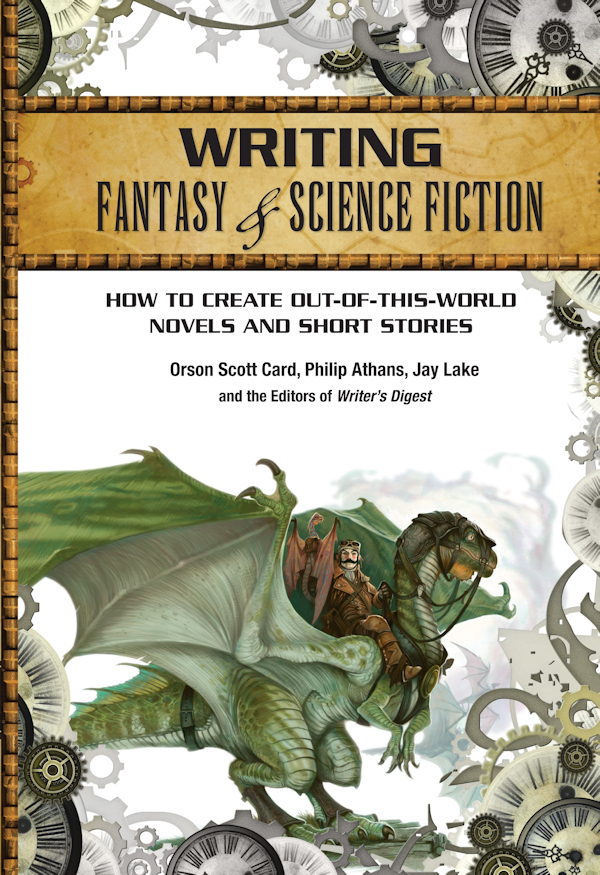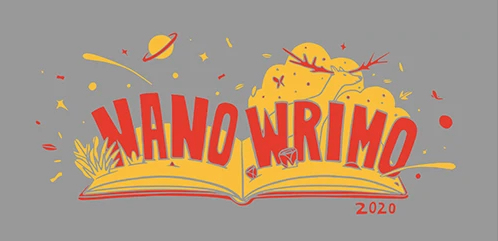
Introduction
You might have a lot of time on your hands due to 2020’s pandemic and have been meaning to finish that novel you’ve been dreaming about publishing. You might have participated in Camp NaNoWriMo or are in the middle of the official NaNoWriMo now. Or maybe you have never written anything beyond an essay and are feeling overwhelmed on how to begin? This article might help steer you in the right direction to becoming an author someday.
What is a Writer?
I think non-writers have this misconception of associating writers, or authors, with the idea that we breathlessly create novels out of thin air, or that writing isn’t difficult for us, or that it comes naturally and effortlessly for us. This is far from the truth and any writer will be quick to tell you writing doesn’t always come easily to them.
How often did you find it difficult in writing the first sentence of an essay, corporate email, or thesis? I’m sure you have agonized over the keyboard, pondering on how to concretely convey meaning with a few simple words. The secret every writer knows deep down in their gut, is writing can be very hard, and the majority of the time, we can’t write at all.

Still, writing can also be enjoyable, at least, when it’s going well and your fingers practically ooze magical poetry across your document. And writing doesn’t necessarily have to be agonizing either, but one must come to understand the journey to becoming a damn good writer is a long and laborious one. And, each time a writer or author sits down before the keyboard, it sometimes doesn’t entirely matter how many novels, short stories, essays, theoretical papers, or published poems they have under their belt.
Writing is a mental battle and an emotional bleed, with the two meshing and building within you to create a story. Sometimes you struggle to produce any type of writing at all. When you finally feel you have created a masterpiece, you send it off to a publisher or agent and it becomes lost in the black hole of other submitted works by wishful writers.
So, today I’ll briefly summarize the process of writing a novel, as well as have some writing advice from some of the best fantasy writers in the genre: Katharine Kerr, Django Wexler, Ben Galley, and Irene Radford.
Beginning the Journey: Advice on Writing Your Novel
So, you want to be a writer, or are aspiring to become an author someday, but you’re unsure how to begin?
Undeniably, the key to anything is to not overthink it. Just sit down and begin. Write about your day at work or at school. Write about how you met your husband. Write about the time you grabbed a cup of joe from your favorite coffee shop. Just begin hitting those keys. From experience, I know the first word or sentence is like pulling teeth, but once you get immersed in your writing, everything begins to flow and, before long, your fingers can barely keep up with your thoughts.
However, since you’re here, I’ll assume you are a lover of the fantasy or science fiction genre, so you want to write fantasy or science fiction stories. A tip I found that helps a lot with writing anything you’re passionate about is to read within the genre. And read a lot. Every author is going to tell you that you need to be reading in your genre, and not just writing in it.
Of course, you also want to read outside of the genre, like historical fiction or romance, and don’t shy away from biographies or historical fiction. There’s a great deal you can get out of reading something like Kurt Vonnegut’s Slaughterhouse-Five or a biography on Napoleon or Frederick Douglass. Plus, you might be able to incorporate a lot of what you have read from these sources into your own fantasy or science fiction story.
 If you are green when it comes to writing, like you have never written a story in your entire life, I would advise you to take some writing workshops or online courses at a university or read some books on the topic. If you want to read up on how to write fantasy or science fiction, I suggest the classic Writing Fantasy & Science Fiction by Jay Lake, Orson Scott Card, and Philip Athans. However, I strongly suggest you add the following to your reading list: The Elements of Style by William Strunk Jr. and E. B. White, On Writing Well by William Zinsser, and Imaginative Writing by Janet Burroway. These books will help hone your writing and cut-out the “fat,” to shape you into a professional writer.
If you are green when it comes to writing, like you have never written a story in your entire life, I would advise you to take some writing workshops or online courses at a university or read some books on the topic. If you want to read up on how to write fantasy or science fiction, I suggest the classic Writing Fantasy & Science Fiction by Jay Lake, Orson Scott Card, and Philip Athans. However, I strongly suggest you add the following to your reading list: The Elements of Style by William Strunk Jr. and E. B. White, On Writing Well by William Zinsser, and Imaginative Writing by Janet Burroway. These books will help hone your writing and cut-out the “fat,” to shape you into a professional writer.
Heck, even purchase Save the Cat! Writes a Novel by Jessica Brody or Stephen King’s On Writing: A Memoir of the Craft. Don’t forget to add some editing books to your pile: Revising Your Novel by Janice Hardy or Self-Editing for Fiction Writers by Renni Browne and Dave King. Lastly, spend some time reading online articles, such as Writer’s Digest, which has a large collection of helpful articles on how to become a better writer.
Aside from reading, you have to figure out what kind of writer you are and there’re two types: The Pantser or The Plotter. The Pantser is exactly what it sounds like, someone who “writes by the seat of their pants,” and doesn’t worry about figuring out the entire story before they finish writing it. On the other end, The Plotter is someone who goes through a lot of outlining, deciding what’s going to happen in the story before the stories end. Also, some authors found writing during certain hours of the day work well for them, and some work in short bursts to get that word count in. Here’s what Django Wexler, author of The Shadow Campaigns series, had to say about discovering what works best for you:
“In terms of writing advice: always remember that all process is personal. Everyone has to find the way of writing that works best for themselves—just because some technique works for a famous author doesn’t mean it’s for you. All that matters in the end is whether you *produce writing* on a regular basis, whether that’s by a daily word count, weekend binges, dictating into a recorder, or scribbling with a quill pen.”
Once you figure out what you prefer, you can check out some of the writing communities out there to “light the fire” beneath you so you’re actively writing each day. There’s Camp NaNoWriMo in April and July, and the official NaNoWriMo, where you are tasked to write 50,000 words in November (you can read my NaNo experience here). The key to participating in NaNoWriMo is to get into the habit of writing while ignoring your “inner editor.”
And your tools for writing, well, it’s entirely up to you what you want to use. Of course, there’s the obvious choice like Microsoft Word, but you can also use an in-depth writing program like Scrivener or an online-based one like Campfire or World Anvil. Heck, break out that old typewriter or scribble across some coffee-stained notepads or Post-It notes, just get those ideas down before you lose them.

Once you have your novel written, you want to have beta readers begin reading through the second or third drafts, and there’s plenty of communities based around this, such as Scribophile, or join one of Reddit’s writing groups like r/fantasywriters or r/scifiwriting. I also suggest you send your novel through Grammarly, a program that not only checks grammar, but can also review the voice or the overall delivery of your writing, and more to boot.
Granted, you want those savvy with editing to sit down and review your novel, not leaving it entirely to an online system. With that in mind, remember the following: No matter how many times you have looked through your novel, you are guaranteed to miss something, so always get a second pair of eyes on it before you begin hunting down an agent or a publisher. Sure, one of my professors told me that you must be able to self-edit. And while what they have said holds true, you’re bound to skim over a mistake, especially if you have reviewed your draft countless times.
One of the best ways to catch mistakes in your drafts is to set your work aside for a time, so you’re not too familiar with it. But I can’t tell you how many times I have tried to self-edit a piece of writing by utilizing those tips, only to send it off and discover more mistakes upon its publication. I know you can spend a lifetime editing a novel, as Tolkien had done with The Silmarillion, but you eventually have to release it or retire it into the discard drawer.
So, once you have sent your novel through three or, goodness gracious, ten or more drafts, you will have to decide to either publish your novel traditionally through a publishing house or self-publish through Amazon or another self-publishing platform.
For those going the traditional publishing route, author Katharine Kerr has some sage advice on the topic.
A Note of Caution: The Dangers of the Publishing World
You might have received an email or phone call from an agent or publisher, informing you they want to represent or publish your work. And while you have every right to be excited, the process of getting your manuscript onto store shelves can be riddled with pitfalls.
Some authors get their first work published but it doesn’t sell well, and ends up being abandoned by the publisher. Others end-up close to being financially ruined, like the author of Fight Club, Chuck Palahniuk. Or get taken advantage of like Peter S. Beagle did with his manager, who stole money and worked the author to exhaustion.
Katharine Kerr, who wrote the fantasy series Deverry Saga,and has been nominated for the Locus Award for Best Fantasy Novel, stated one should be aware things can still turn out badly for an author, even when their first novel has been published:
“Traditional publishing has one real danger a lot of new authors don’t know: being orphaned. Editors change jobs all the time. That sympathetic person who bought the first book in your proposed series may find a better job before you finish book two. There is absolutely nothing you can do about it. The editor’s new house won’t want to buy the next book. Even with standalone novels, your new editor may be less than enthusiastic about someone else’s discovery—you. You have to have enough faith in your writing to move on when you have to.”
So, while your epic fantasy novel or science fiction series may have landed a book deal, you’re not out of the woods yet and it’s easy for new authors to become excited, only to watch their hard work dwindle and disappear.
The First Published Novel
Aside from the legal mess a newly published author can experience, there’s the emotional one as well. Authors who have waited so long for their book to be published can experience a “publishing high” of their first novel being released. An author can be waiting months or years for the novel to finally hit store shelves, and their book seeing the light can come as a shock.
Here’s what Django Wexler, has to say about being published:
“On getting my first novel published: it’s kind of a weird feeling, because of how slowly everything happens. I got an agent, and I was over the moon—then we had to submit the novel to publishers, which meant weeks and weeks of waiting. Then an editor bought it, and again it’s very exciting, but between that moment and the release was something like *eighteen months*!
By the time the book actually came out I’d written at least two more books, it kind of felt like, “Oh, yeah, I guess I did do that way back then!” And *then* actual release day, if you’re a mid-list-ish author like me, can be kind of a letdown. You go to your local store, and they have your book! You get to sign a few copies! And then…that’s sort of it? I was lucky because they sent me to SDCC (San Diego Comic-Con), which at least felt like an event, even if nobody had ever heard of me. So basically, it’s simultaneously exciting (because you published a book!) but also anticlimactic (because everything takes forever).”
The fact is, you have to realize that even though your novel is being published, it could be a long road till it finally hits store shelves. And, once again, while the novel has been published, you could still run into some troubles. It’s no wonder that so many go the self-publishing route with their first few novels, but that route has a lot of dangers as well.
Self-Publishing That Book?
What if you’re looking to go the self-publishing route? Like traditional publishing, there’s plenty of reasons to be cautious when one is trying to self-publish their novel. While Amazon makes it painfully easy, and you can certainly publish that short story in as little as an hour, there’s a difference between publishing your novel and self-promoting it. And while we have authors who have had a lot of success self-publishing, like Evan Winter’s with The Rage of Dragons or Ben Galley’s Chasing Graves trilogy, it is not the same with everyone.
There’s a ton that goes into getting your book higher in the list of Google and Amazon’s keyword algorithm. You better make sure to research your genre and select the correct keywords to plug into your book’s description and tags, so it appears higher in the list of similar works. You don’t want to skimp on the cover either, since it’s the first thing the buyer will see when it appears on a bookstore’s shelf or Amazon’s booklist. Hiring a professional graphic designer to design the cover of your book can be expensive, with many spending $500 or more. But getting a nice cover doesn’t guarantee large sales. There’s also the task of formatting your book for epublishing and that’s only scratching the surface of what you need to do to try to ensure your self-published novel is a success.
Aside from getting your book to look professional, both inside and out, you have to market it yourself. That involves setting-up your own book signings, attending conventions, getting bloggers to review your work on their websites, and controlling your book sales online. You can go on websites like Fiverr or Upwork, but you want to remain cautious on who you hire and how much you spend. You don’t want to spend too little and have your book looking unprofessional, but you don’t want to go overboard and spend too much when it might not even sell a single copy. Publishing, whether traditional or self-published, is a gamble. You either go unnoticed, receive a good amount of sales, or become a bestselling author right out of the gate.
But it is possible, and you shouldn’t allow yourself to become discouraged from pursuing the self-publishing route. Heck, dark fantasy author Ben Galley went through a lot to get his novels published and doesn’t regret the route he has taken:
“Waaaay back in 2010, I launched The Emaneska Series. The culmination of years of work, this series was my first foray into the book market, and a huge turning point for me professionally and personally.
It was one hell of a self-taught crash-course in self-publishing and entrepreneurship, but once I saw that first sale, it showed that publishing successfully was not only possible, but worthwhile. I could see a path to being a professional author ahead. Compared to the dead-end jobs I was working as a bartender and pasty-tender, that path shone. I was hooked like a hungry trout. So began years of hard work.
Here I am, ten years later, thirteen books later, five years of being a full-time author under my belt, and as it happens, I’m back in Emaneska for a new series. I couldn’t be happier, and I owe it all to that frozen world. There’s no better job.”
Of course, while you want to ensure your self-published novel is going to be a success, you don’t want to completely overwhelm yourself during the process and end-up quitting. You don’t want to give up just because the process of marketing your novel seems daunting and too much work, as Ben Galley is quick to remind us:
“If I can share anything with my fellow authors, it would be:
Don’t try to do everything.
I’m guilty of this, but it’s natural for an author who’s passionate about success to feel overwhelmed by the sheer scope of marketing. It can feel like we have to do everything to succeed. Twitter, AMS ads, Facebook ads, Bookbub, mailing lists, Instagram… the list of things to do is endless, and if we don’t, we fail. By piling too much on yourself, you can go mad and sadly erode the joy of this job. Take it from me: go at your own pace, master a few elements at a time, and then adapt and expand to new ideas. And always—always—keep writing at the forefront. There’s no better marketing than your next book.”
And, while you might become overwhelmed with the entire process of getting that novel into the public hands, you need to keep in mind why you write to begin with.
Don’t Lose Sight of Why You Write
While it’s always good to remain mindful of the process of publishing or self-publishing, don’t allow it to kill your creative drive to write more novels. We write because we have this idea inside our heads that needs to come to life. And, maybe, others might enjoy our imagined worlds as well.
Perhaps you read The Epic of Gilgamesh and suddenly felt inspired to write your own myth from the ancient legend. Or re-write Le Morte d’Arthur, but put your own, personal spin on it? This is where we circle back to the tip I gave about reading: Read a lot and allow it to color your writing. Irene Radford, the fantasy author of The Dragon Nimbus series, states life’s lessons repeat themselves over and over again, in both histories and stories new or old. That writing stories gives humanity meaning and fuels our creativity:
“It is after all, about the story. That’s why we write, whether it’s fiction, or memoir, or screenplays, biography, or essay. We have a story to tell. We have modern myths to bring to our audience. We have a new folklore to create.”
This leaves us the final point of this entire article: Don’t stop writing. For, while it’s good to know the ins-and-outs of writing and getting that book published, what Radford stated in her acceptance speech holds true for all of us. Whether we are still aspiring to be an author or have ten or more published novels beneath our belts, writing gives us meaning and joy. We shouldn’t become disheartened when a schoolteacher, professor, boss, or parent tells us to, “Get a real job”. And, if writing is truly your passion, you should partake in it as much as possible.
Although, we should be able to accept criticism to grow in our craft. For example, when I was writing for my internships in college, I had two very different writing experiences. In the first internship I received a lot of constructive feedback on how to improve my writing and, surprise surprise, I grew from the experience and was able to use what I learned. The second internship was far different from the first, with no detailed criticism and vague comments of, “Oh, I wish I had time to critique your work,” to, “Your writing is good, but not phenomenal,” ended-up crushing my writing drive. And an experience like that could drive anyone to stop writing. I did learn a thing or two from that second internship: What criticisms to accept and what criticisms to discard.
I had a professor in college, let’s call him Dr. P, who was brutal when it came to grading and even had a list of words we couldn’t use in our papers. However, while he was a stickler for his rules, he gave valuable, detailed feedback that helped me immensely. Compared to the second internship, his critique and feedback was an aspiring author’s dream come true.
You have to learn what feedback to accept and know how to take criticism with dignity, and not lose your sanity or creative drive in the process. As Radford stated, we need to be able to learn from criticism and then get right back to writing:
“We all get rejections. So, cry, complain, throw things. Then apply butt to chair and hands to keyboard and get back to work.”
And while you might cry a little or not shed a single tear, you should never stop in trying to achieve your dream. Many authors, such as Katharine Kerr, Django Wexler, Ben Galley, and Irene Radford, have gone through the same “growing-pains” you might be undergoing right now. If they can do it, so can you.
Stay safe everyone and happy writing!
– – –
I like to thank the authors for lending their advice and voices to my article. You guys are a treasure to the fantasy genre and have my highest regard!
Title image by Free-Photos.


[…] Hey everyone! My recent article on Becoming an Author: With Advice from Those Who’ve Done It has dropped at Fantasy-Faction. You can read it here. […]